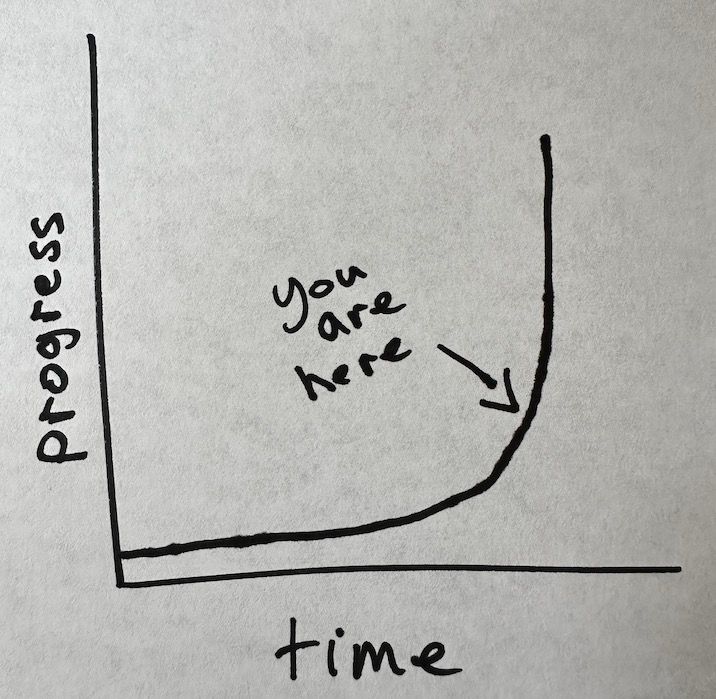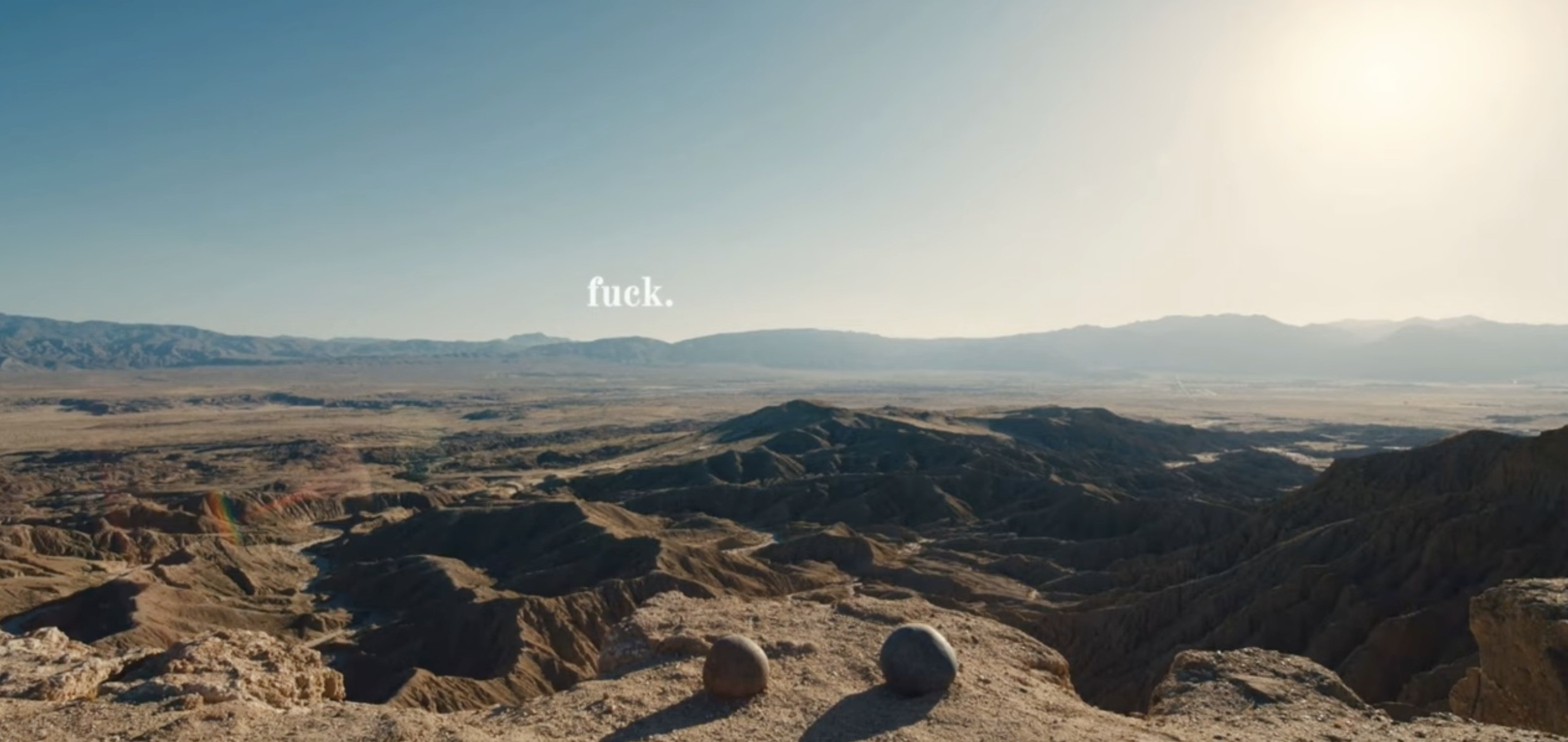Captain's Log #2
So much for regular posting! My last newsletter was in November, which seems like a lifetime ago.
In that newsletter I predicted that we would start to use AI to ask questions instead of Google Search. Shortly after publishing ChatGPT was announced. Then in March GPT-4 was unleashed upon the world. Everything changed. Especially my life. But more on that later...
From sailing to the land
Sailing in Britain is miserable. It's grey, it's cold, it's muddy, and you barely make a knot against the rushing tide. Growing up there, I loved it.
Every summer holiday, my parents would fill the bilges of their ketch to the brim with cans of tomato soup and baked beans. Then, we'd cast off for a few weeks. And, although we never ventured further than France, the experience instilled in me a deep love for the ocean.
In 2020, I finally got that chance for my own sailing adventures. When I heard Starlink was being developed I realized it was going to make my dream of working from a boat feasible, so I bought one and picked her up a year later in South Africa. From Cape Town I sailed across the Atlantic to Grenada, and then island hopped up to the BVIs.
Spending the last two years living and working from a boat was quite an incredible experience, and one I want to write more about someday. Suffice to say, that particular chapter is closing. But do not fret, dear reader, for the reason is a good one. I've met someone special and followed her landwise. And I couldn't be happier.
AI and working
Transformer technology has totally transformed my work. It's challenging to explain to people outside the field just what a fundamental change has taken place. But essentially I now have a virtual mid-level programmer who codes alongside me, tirelessly, all day, for pennies.
So what does it look like in practice? In my editor (I'm trialing one called Cursor), I have an AI chat window with context as to what I'm looking at. I can ask the AI to refactor a bit of code, write my tests, or find bugs. I've even started asking it more broad level system design questions. Should I use a join table or a string array, that sort of thing.
Recently I've been playing around with WebGPU, a new API for low-level access to the graphics card. I've been using it to write a client-side semantic search engine. Anyway, the point is that WebGPU was released two years after GPT-4 was trained so the model has no concept of the API. But, like with a human, I was able to teach it the new spec by giving it some examples and a couple of tips.
What a world we live in!
Projects
The majority of my time is spent on Reflect, my note-taking app.
We recently passed the 3k customers mark, and it looks like we're going to be profitable later this year. The great thing about running a smaller semi-bootstrapped business is that the moment Reflect is profitable, it's a success. We'll slowly grow it, profit-sharing with our crowd-fund investors and employees along the way. No waiting for some uncertain liquidity event in the far future. This is the way.
For those of you looking to build your own lifestyle businesses, I recommend you pick B2B over B2C. Read this article on carrying capacity for some of the reasons why. In my case though, Reflect is more of a passion project.
Side projects
Typically my side-projects are just little things I want to see in the world. One such one is 101.school, an AI course generator.
I dropped out of university (actually I dropped out of high-school), and there definitely some courses I would have loved to have taken. For instance, Astronomy 101.
Using 101.school, I've generated myself a course on Astronomy, a new unit of which gets emailed to me everyday. And now I know what a neutron star is.
Back to AI
Enough about me - let's talk about AI, that's much more interesting.
It's clear to me that we're on a curve, and that curve is going vertical.
Imagine if nothing ever changed in your life, nor in your parents life, or their great grandparents. Same tools, same problems, same life. Well, for most of humanity, that was our history. Not much as changed for the last 200k years.
Only recently have we seen progress discernible inside a human lifetime. Ever since the Enlightenment we've been on some kind of exponential curve of progress. Which is fortunate because it's the only thing that will save us. 99% of species go extinct. No matter how "sustainable" we are, eventually a meteorite comes along and we're back to square one. Progress is the only way of breaking out of this loop.
Humans are really great at adapting though. We don't really notice the progress. Even though we've gone from horses to planes to rockets and cell phones in a couple of generations, we still have Peter Thiel grumbling about stagnation.
Recently though, progress has been hard to ignore. It seems like every other day there's some new paper or breakthrough. This is because our rate of progress is starting to go vertical. We've gone from one side of the curve to the other. Eventually we'll be fully vertical (aka the Singularity), which I think will happen in our lifetimes - perhaps even this decade.

I've been polling the poor people who follow me on Twitter regularly about when they predict we'll get an AGI. In 2018, the most popular response was that it was impossible. Now the popular response is that we'll get it this decade. That's quite a shift! My audience tends to be be on the optimistic side, I'll give you (they thought we had a room-temperature semi-conductor), but I'm clearly not the only one feeling this progress.
It's funny - many of us think we'll get some kind of super-intelligence soon, but we're all going about our lives like nothing's happened. I guess... what can you do to prepare for something like that? Floss?
Man vs machine
It's hard being a human. Every new discovery is just a reminder we're all small and stupid.
We used to believe we were at the center of the universe - God's people. Now we know that we orbit a sun which is just one of a hundred billion suns in our galaxy, which is just one of a hundred billion galaxies in the universe, which is potentially one of an infinite number of multiverses... Phew!
Some call it the Copernican Principle. Others call it the Great Humiliation. Slowly but surely the things that we once thought were special to us... unique to us, get whittled away.
God - nope, sorry. Souls, nada. Free-will, unlikely.
It's no surprise that we still cling onto the few things left. Consciousness, reasoning, creativity. That's basically it. No wonder we get defensive when these things are threatened by machines.

I look at it a little differently. We're not separate from the universe, we're a part of it. It's silly to have an ego about it. You're made of the same stuff as the chair you're sitting on. Your carbon was probably forged in the same supernova.
Consciousness, reasoning, creativity - these aren't uniquely ours - they're just properties of the universe.
What we know about the universe is so stupendously beautiful and awe inspiring that just by existing, by experiencing, you've already won.
You are an immortal manifestation of the universe oscillating between energy and matter for the rest of time. And your potential, through knowledge, is bounded only by the laws of physics.
I find that comforting, don't you?